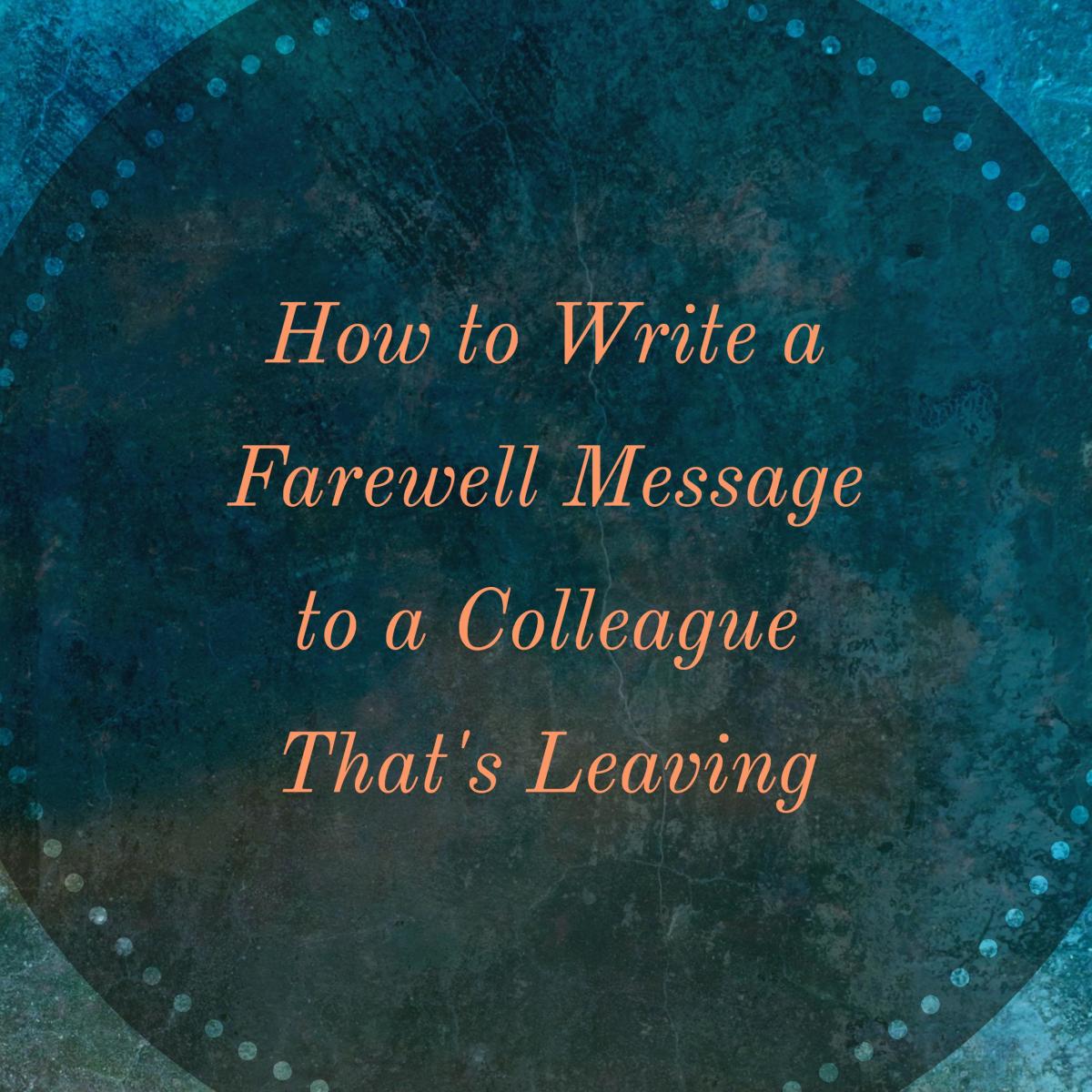Crafting the Perfect Exit: Short Goodbye Messages for Departing Employees
Leaving a job, whether for a new adventure or a different path, always involves a bit of reflection. One of the final steps in this transition is often crafting a goodbye message to colleagues. But what's the best way to say farewell without rambling? This article explores the art of writing concise yet effective goodbye messages when you're moving on from a company.
Saying goodbye is never easy, especially when you've built relationships with coworkers. A well-crafted farewell note can leave a positive lasting impression. It's an opportunity to express gratitude, acknowledge shared experiences, and wish your colleagues well. But how do you convey all of this in a brief, professional manner? That's the challenge many face when preparing to depart from their workplace.
While some might opt for long, emotional farewells, a concise and thoughtful message can be equally impactful. A brief goodbye doesn't imply a lack of appreciation; rather, it shows respect for everyone's time. In today's fast-paced world, shorter messages are often preferred, ensuring your farewell is read and appreciated rather than getting lost in a sea of words.
The concept of parting messages is certainly not new. From handwritten letters to farewell speeches, the tradition of acknowledging departures has long been a part of workplace culture. These messages serve as a form of closure, allowing individuals to formally mark the end of a chapter. In the digital age, this practice has evolved to include emails and instant messages, but the core purpose remains the same: to express gratitude and bid farewell.
An effective farewell message, regardless of length, should convey sincerity and appreciation. It's about acknowledging the shared journey and expressing good wishes for the future. Whether it's a short and sweet email or a quick message on a company platform, the key is to make it genuine and respectful. Let's delve deeper into how to create these impactful farewell notes.
One benefit of a short and sweet goodbye message is its efficiency. It respects everyone's busy schedules. For example, a simple "It's been a pleasure working with you all. Best of luck!" is quick to read and digest.
Another advantage is clarity. A concise message focuses on the essential sentiment of farewell and avoids unnecessary rambling. "Wishing you all the best in the future" is a clear and direct expression of goodwill.
Lastly, a short message can be more impactful. By focusing on key sentiments, you avoid diluting the message. "Thank you for everything. I've learned so much" expresses sincere gratitude without unnecessary elaboration.
A step-by-step guide for writing a farewell message: 1. Start with a greeting. 2. Express gratitude. 3. Briefly mention your next step (optional). 4. Offer best wishes. 5. Close with your name.
Advantages and Disadvantages of Short Goodbye Messages
| Advantages | Disadvantages |
|---|---|
| Saves time for both sender and recipient | May seem impersonal if not crafted carefully |
| Easy to read and digest | Limited space to express deeper sentiments |
| Suitable for large distribution lists | Not ideal for close colleagues or mentors |
Best Practices:
1. Keep it brief: Aim for a few sentences.
2. Be positive: Focus on the positive aspects of your experience.
3. Express gratitude: Thank colleagues for their support.
4. Be professional: Maintain a professional tone.
5. Proofread: Ensure your message is free of errors.
Examples:
1. "It's been a pleasure working with you all. Best wishes for the future!"
2. "Thank you for the opportunity to work here. I wish you all the best."
3. "I've enjoyed my time here and learned so much. Farewell!"
4. "Thank you for everything. I'll miss working with you all."
5. "It's been great! All the best for the future."
Challenges and Solutions:
1. Challenge: Feeling emotional. Solution: Focus on professional gratitude.
2. Challenge: Wanting to say more. Solution: Keep it concise and consider a separate personal message for close colleagues.
3. Challenge: Not knowing everyone well. Solution: Use a general message of thanks and well wishes.
4. Challenge: Leaving on negative terms. Solution: Keep the message brief, professional, and avoid negativity.
5. Challenge: Unsure of company culture regarding goodbye messages. Solution: Observe what others have done or ask HR for guidance.
FAQ:
1. Should I send a goodbye message? Generally, yes, it's considered good professional etiquette.
2. Who should I send it to? Typically, your team and any close colleagues.
3. When should I send it? Your last day or a day or two before.
4. What should I include? Gratitude, well wishes, and optionally, your next step.
5. What should I avoid? Negativity, complaints, or overly personal information.
6. Can I send a separate message to close colleagues? Yes, this is perfectly acceptable.
7. Should I mention my new role? It's optional, but can be a nice touch.
8. What if I'm laid off? A short, gracious thank you message is still appropriate.
Tips and Tricks: Consider personalizing your message slightly for closer colleagues. If appropriate, mention a specific positive memory shared with your team.
In conclusion, crafting a short goodbye message when leaving a company is a valuable professional courtesy. While leaving a job can be a mix of emotions, a well-crafted farewell note allows you to express gratitude, acknowledge shared experiences, and leave a positive final impression. By focusing on sincerity, brevity, and professionalism, you can ensure your message is appreciated and remembered. Take the time to thank those who have been a part of your journey, and wish them well as you embark on your next adventure. A short, well-crafted goodbye is a powerful way to maintain professional relationships and leave a lasting legacy of positivity. Embrace the opportunity to express your gratitude and leave on a good note, paving the way for future connections and opportunities.
Newark performing arts center nj
Expedite your ally auto loan payoff a comprehensive guide
Best friend tattoos on foot a unique way to celebrate your bond














